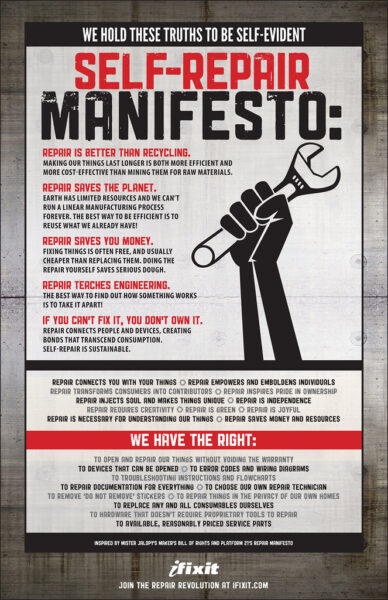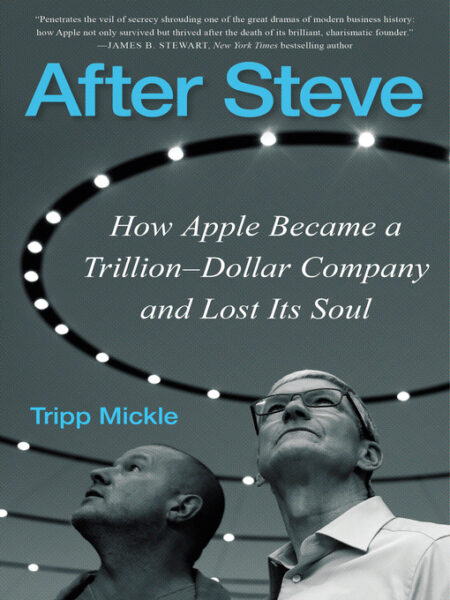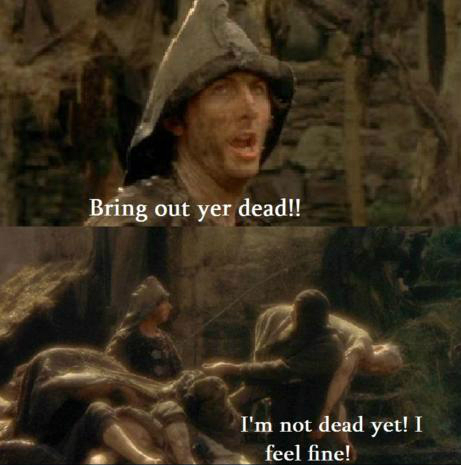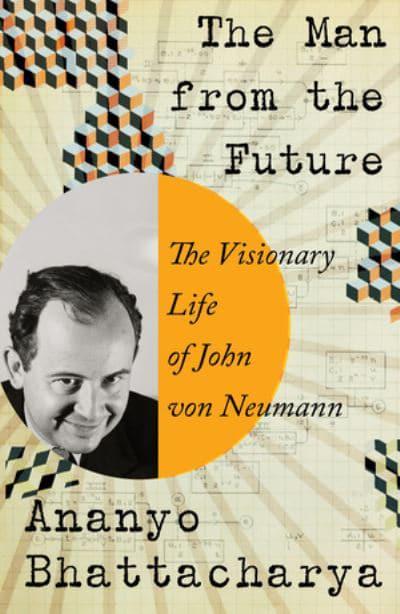Researchers at the University of London Institute of Psychiatry say the distractions of email and such extract a toll on intellectual performance as similar to that of marijuana. The study of 1,100 volunteers found that attention and concentration could be so frazzled by answering and managing calls and messages that IQ temporarily dropped by 10 points. The resulting loss of focus due to “Crackberry”, in fact, was judged to worse than that experienced by pot smokers.
This, of course, cannot really be a surprise. It is a great hallmark of modern life that over-indulgence in practically anything can be turned into pathology given enough time and clinical studies.
Jeff A. Taylor, Reason Express, 2005-04-26.
April 20, 2024
QotD: Cyber-addiction
February 2, 2024
QotD: Financial bubbles
That financial markets sometimes go off on one has been noted for centuries now. Dutch Tulips, the South Sea Bubble, Dotcom and more recently Bitcoin have all shown that the lust for easy speculation profits can lead to, well, to financial excess at minimum. Those with an orderly cast of mind like to point out that all of this is waste. If instead the truly wise and clever people – after we’ve installed them in government or at least the bureaucracy – could apportion society’s assets very much better. You know, truly invest in the diversity advisers civilisation so badly needs.
The thing is, economists often disagree at this point. Sure, financial bubbles, they occur. Sure, there’s waste in them. But perhaps the very bubble itself is an either useful or necessary part of the process.
Necessary in that perhaps it needs a mania to get some new technology over the finish line. I tend to think it’s not going to happen with Tesla but it did with Railway Mania. Without speculators searching for easy money the network never would have been built out. Without Dotcom Amazon probably wouldn’t have got funded through the decade it was scratching a living.
It’s also possible that it’s just useful. For the overbuilding in the mania might then leave assets that are repurposed to get other technologies over that finish line into general use. Global Crossing lost a fortune – no, really billions – on building out fibre optic cabling to girdle the world. Which was, after the bankruptcy, bought up by the Googles and the like to carry all this web and video stuff. It’s arguably true that without the previous overinvestment we’d simply never have developed – or perhaps not for decades – such resource and bandwidth-hungry hogs.
Tim Worstall, “Cloud Rendering – The Latest Proof That Investment Bubbles Actually Work”, Continental Telegraph, 2019-03-17.
January 6, 2024
QotD: “Computer people are just people”
Not being a computer person myself, I keep forgetting that computer people are just people, meaning they’re no less silly, cliquish, and fad-chasing than the rest of us. Meyers-Briggs seems like a very short step above astrology to me — do I really need a long questionnaire to tell me I’m an extrovert? — but I shouldn’t be surprised that computer people like it. In my experience, “psychology” is to computer people what “computers” are to psych majors — randomly blinking ooga booga boxes that do some cool things, but are mostly a terrifying mystery. Liberal Arts people (of which Psych Majors are the most liberal) love Apple products not least because they promise to bury all that blinky ooga-booga stuff under “the user experience”; thus it shouldn’t surprise me that a quick-and-easy “test” that promises to unlock the secrets of the psyche appeals to the other sort.
Severian, “For Future Historians’ Benefit…”, Rotten Chestnuts, 2021-02-21.
October 2, 2023
Why Web Filters Don’t Work: Penistone and the Scunthorpe Problem
Tom Scott
Published 6 Jun 2016In a small town with an unfortunate name, let’s talk about filtering and innuendo. And use it as an excuse for as many visual jokes as possible.
(more…)
March 28, 2023
Computers and music, from 1961 to 2001
Ted Gioia explains the deep history behind the scene in the movie 2001: A Space Odyssey where H.A.L. sings a song:
Not many people could afford an IBM 7094 computer back in the early 1960s — a typical installation cost $3 million. That’s the equivalent of around $20 million in purchasing power today. Over the course of the decade, fewer than 300 were built.
You didn’t get much computing power for that hefty price tag, at least by current-day standards. But if you wanted a machine that did complex or rapid math, you had few other options. The 7094 could handle 250,000 additions or subtractions in just one second. A whole room of accountants couldn’t keep up with it.
But addition and subtraction aren’t very sexy. So someone got the bright idea of teaching the IBM 7094 to sing. That’s why John L. Kelly Jr., Carol Lockbaum, and Lou Gerstman of Bell Labs, in Murray Hill, New Jersey, began working in 1961 on this pioneering computer music project.
Digital music wasn’t an entirely new development, even in those distant days, but singing presented completely different challenges, requiring breakthroughs in speech synthesis. But Bell Labs — then the in-house research arm of AT&T (it’s now part of Nokia) — had more expertise in that area than any other organization in the world.
The Bell Labs team needed a song for their experiment. They decided on “Daisy Bell” — also known as “Bicycle Built for Two” — composed by British tunesmith Harry Dacre in 1892.
The idea for the song came to Dacre when he visited the US and found, to his surprise, that the customs officials had imposed a tariff on his bicycle. A friend quipped that he was lucky it wasn’t a bicycle with two seats, or the duty might have been double. The end result was Dacre’s most successful song ever.
[…]
Even back in the early 1960s, this tune didn’t have much hipness potential. But at least the melody was simple, well-known, and no longer protected by copyright. (That said, I would love to watch a jury in 1961 debate computer music rights.)
For the instrumental parts of the song, the Bell Labs team relied on contributions from Max Matthews, who had created a breakthrough sound-generating program called MUSIC back in 1957. In those ancient analog days, he had hooked up his violin to an IBM 704, and was thus the first performer in history to transfer live music to a computer for synthesis and playback.
March 24, 2023
A very different take on the Wuhan Coronavirus pandemic
At The Conservative Woman, Dr. Mike Yeadon lays out his case for doubting that there ever actually was a novel coronavirus in the first place:
I’ve grown increasingly frustrated about the way debate is controlled around the topic of origins of the alleged novel virus, SARS-CoV-2, and I have come to disbelieve it’s ever been in circulation, causing massive scale illness and death. Concerningly, almost no one will entertain this possibility, despite the fact that molecular biology is the easiest discipline in which to cheat. That’s because you really cannot do it without computers, and sequencing requires complex algorithms and, importantly, assumptions. Tweaking algorithms and assumptions, you can hugely alter the conclusions.
This raises the question of why there is such an emphasis on the media storm around Fauci, Wuhan and a possible lab escape. After all, the “perpetrators” have significant control over the media. There’s no independent journalism at present. It is not as though they need to embarrass the establishment. I put it to readers that they’ve chosen to do so.
So who do I mean by “they” and “the perpetrators”? There are a number of candidates competing for this position, with their drug company accomplices, several of whom are named in Paula Jardine’s excellent five-part series for TCW, Anatomy of the sinister Covid project. High on the list is the “enabling” World Economic Forum and their many political acolytes including Justin Trudeau and Jacinda Ardern.
But that doesn’t answer the question why are they focusing on the genesis of the virus. In my view, they are doing their darnedest to make sure you regard this event exactly as they want you to. Specifically, that there was a novel virus.
I’m not alone in believing that myself at the beginning of the “pandemic”, but over time I’ve seen sufficient evidence to cast strong doubt on that idea. Additionally, when considered as part of a global coup d’état, I have put myself in the position of the most senior, hidden perpetrators. In a Q&A, they would learn that the effect of a released novel pathogen couldn’t be predicted accurately. It might burn out rapidly. Or it might turn out to be quite a lot more lethal than they’d expected, demolishing advanced civilisations. Those top decision-makers would, I submit, conclude that this natural risk is intolerable to them. They crave total control, and the wide range of possible outcomes from a deliberate release militates against this plan of action: “No, we’re not going to do this. Come back with a plan with very much reduced uncertainty on outcomes.”
The alternative I think they’ve used is to add one more lie to the tall stack of lies which has surrounded this entire affair. This lie is that there has ever been in circulation a novel respiratory virus which, crucially, caused massive-scale illness and deaths. In fact, there hasn’t.
Instead, we have been told there was this frightening, novel pathogen and ramped up the stress-inducing fear porn to 11, and held it there. This fits with cheating about genetic sequences, PCR test protocols (probes, primers, amplification and annealing conditions, cycles), ignoring contaminating genetic materials from not only human and claimed viral sources, but also bacterial and fungal sources. Why for example did they need to insert the sampling sticks right into our sinuses? Was it to maximise non-human genetic sequences?
Notice the soft evidence that our political and cultural leaders, including the late Queen, were happy to meet and greet one another without testing, masking or social distancing. They had no fear. In the scenario above, a few people would have known there was no new hazard in their environment. If there really was a lethal pathogen stalking the land, I don’t believe they’d have had the courage or the need to act nonchalantly and risk exposure to the virus.
Most convincingly for me is the US all-cause mortality (ACM) data by state, sex, age and date of occurrence, as analysed by Denis Rancourt and colleagues. The pattern of increased ACM is inconsistent with the presence of a novel respiratory virus as the main cause.
If I’m correct that there was no novel virus, what a genius move it was to pretend there was! Now they want you only to consider how this “killer virus” got into the human population. Was it a natural emergence (you know, a wild bat bit a pangolin and this ended up being sold at a wet market in Wuhan) or was it hubristically created by a Chinese researcher, enabled along the way by a researcher at the University of North Carolina funded by Fauci, together making an end run around a presidential pause on such work? Then there’s the question as to whether the arrival of the virus in the general public was down to carelessness and a lab leak, or did someone deliberately spread it?
March 16, 2023
Once it was possible to be a fully fledged techno-optimist … but things have changed for the worse
Glenn Reynolds on how he “lost his religion” about the bright, shiny techno-future so many of us looked forward to:
Listening to that song reminded me of how much more overtly optimistic I was about technology and the future at the turn of the millennium. I realized that I’m somewhat less so now. But why? In truth, I think my more negative attitude has to do with people more than with the machines that Embrace the Machine characterizes as “children of our minds”. (I stole that line from Hans Moravec. Er, I mean it’s a “homage”.) But maybe there’s a connection there, between creators and creations.
It was easy to be optimistic in the 90s and at the turn of the millennium. The Soviet Union lost the Cold War, the Berlin Wall fell, and freedom and democracy and prosperity were on the march almost everywhere. Personal technology was booming, and its dark sides were not yet very apparent. (And the darker sides, like social media and smartphones, basically didn’t exist.)
And the tech companies, then, were run by people who looked very different from the people who run them now – even when, as in the case of Bill Gates, they were the same people. It’s easy to forget that Gates was once a rather libertarian figure, who boasted that Microsoft didn’t even have an office in Washington, DC. The Justice Department, via its Antitrust Division, punished him for that, and he has long since lost any libertarian inclinations, to put it mildly.
It’s a different world now. In the 1990s it seemed plausible that the work force of tech companies would rise up in revolt if their products were used for repression. In the 2020s, they rise up in revolt if they aren’t. Commercial tech products spy on you, censor you, and even stop you from doing things they disapprove of. Apple nowadays looks more like Big Brother than like a tool to smash Big Brother as presented in its famous 1984 commercial.
Silicon Valley itself is now a bastion of privilege, full of second- and third-generation tech people, rich Stanford alumni, and VC scions. It’s not a place that strives to open up society, but a place that wants to lock in the hierarchy, with itself on top. They’re pulling up the ladders just as fast as they can.
February 5, 2023
This 1970s tank simulator drives through a tiny world
Tom Scott
Published 17 Oct 2022At the Swiss Military Museum in Full, there’s the last remaining example of a 1970s tank-driving simulator. But there’s no virtual worlds here: it’s connected to a real camera and a real miniature model. ■ More about the museum: https://www.festungsmuseum.ch/
(more…)
December 19, 2022
QotD: When reality fails to follow the model, ditch reality
Alexander wept, for he saw there were no more worlds to conquer …
I get that, man. On some fundamental level. But that makes me a generally unhappy guy. So it is, so it has always been.
For whatever reason, the Leftist is able to externalize that. If there are no more worlds to conquer, well, that’s the world’s fault. I remember hanging out with some of the Political Science goofs at Flyover State. For whatever reason, they rank pretty high for Poli Sci — their department developed some measure of whatzit to better analyze the doodad, you know how it goes, the Karl Roves and James Carvilles of the world all use it.
Anyway, this was 2004, when George W. Bush won his reelection campaign against Kerry. Exactly zero of the Flyover State Poli Sci goofs predicted that. They were all certain that Kerry was cruising to victory. When I pointed out that this seems to be a BIG flaw in their precious model — the election wasn’t even particularly close — their response was instructive: It wasn’t the model’s fault. Rather, it’s that the American public chose to throw a temper tantrum.
That’s seriously what they went with. There’s the actual, observed behavior of 70 million people; and there’s your model; and when the one contradicts the other, the only possible explanation is: All those people are idiots.
(One of those grad students I was talking to ended up doing something “unofficial” yet fairly important for the Hillary Clinton campaign in 2016; if I’d known that, I could’ve called it for Trump at the very start of election and made a fortune on prop bets).
It’s probably genetic for them, too. Which is either hopeful or depressing, depending, but I think it answers the question: Why does society end up being ruled by Very Clever Boys? They just can’t do anything else. They can’t internalize; they have game the system. Have to. A society that wants to survive must find a system for them to game, somewhere far isolated from the real affairs of people.
Severian, “Me vs. The World”, Founding Questions, 2022-09-14.
December 9, 2022
QotD: Computer models of “the future”
The problem with all “models of the world”, as the video puts it, is that they ignore two vitally important factors. First, models can only go so deep in terms of the scale of analysis to attempt. You can always add layers — and it is never clear when a layer that is completely unseen at one scale becomes vitally important at another. Predicting higher-order effects from lower scales is often impossible, and it is rarely clear when one can be discarded for another.
Second, the video ignores the fact that human behavior changes in response to circumstance, sometimes in radically unpredictable ways. I might predict that we will hit peak oil (or be extremely wealthy) if I extrapolate various trends. However, as oil becomes scarce, people discover new ways to obtain it or do without it. As people become wealthier, they become less interested in the pursuit of wealth and therefore become poorer. Both of those scenarios, however, assume that humanity will adopt a moral and optimistic stance. If humans become decadent and pessimistic, they might just start wars and end up feeding off the scraps.
So, interestingly, what the future looks like might be as much a function of the music we listen to, the books we read, and the movies we watch when we are young as of the resources that are available.
Note that the solution they propose to our problems is internationalization. The problem with internationalizing everything is that people have no one to appeal to. We are governed by a number of international laws, but when was the last time you voted in an international election? How do you effect change when international policies are not working out correctly? Who do you appeal to?
The importance of nationalism is that there are well-known and generally-accepted procedures for addressing grievances with the ruling class. These international clubs are generally impervious to the appeals (and common sense) of ordinary people and tend to promote virtue-signaling among the wealthy class over actual virtue or solutions to problems.
Jonathan Bartlett, quoted in “1973 Computer Program: The World Will End In 2040”, Mind Matters News, 2019-05-31.
October 8, 2022
Faint glimmers of hope for Canadians’ “right to repair”?
Michael Geist on the state of play in modifying Canada’s digital lock rules to allow consumers a tiny bit more flexibility in how they can get their electronic devices repaired:

“The Self-Repair Manifesto from ifixit.com ‘If you can’t fix it, you don’t own it’. Hear, hear!” by dullhunk is licensed under CC BY 2.0 .
Canadian anti-circumvention laws (also known as digital lock rules) are among the strictest in the world, creating unnecessary barriers to innovation and consumer rights. The rules are required under the World Intellectual Property Organization’s Internet Treaties, but those treaties leave considerable flexibility in how they should be implemented. This is reflected in the countless examples around the world of countries adopting flexible anti-circumvention rules that seek to maintain the copyright balance. Canada was pressured into following the restrictive U.S. approach in 2012, establishing a framework is not only more restrictive than required under the WIPO treaties, but even more restrictive than the U.S. system.
One of the biggest differences between Canada and the U.S. is that the U.S. conducts a review every three years to determine whether new exceptions to a general prohibition on circumventing a digital locks are needed. This has led to the adoption of several exceptions to TPMs for innovative activities such as automotive security research, repairs and maintenance, archiving and preserving video games, and for remixing from DVDs and Blu-Ray sources. Canada has no such system as the government instead provided assurances that it could address new exceptions through a regulation-making power. In the decade since the law has been in effect, successive Canadian governments have never done so. This is particularly problematic where the rules restrict basic property rights by limiting the ability to repair products or ensure full interoperability between systems.
The best policy would be to clarify that the anti-circumvention rules do not apply to non-infringing uses. This would enable the anti-circumvention rules to work alongside the user rights in the Copyright Act (also known as limitations and exceptions) without restricting their lawful exercise. This approach was endorsed by the 2019 Canadian copyright review, which unanimously concluded:
it agrees that the circumvention of TPMs should be allowed for non-infringing purposes, especially given the fact that the Nintendo case provided such a broad interpretation of TPMs. In other words, while anti-circumvention rules should support the use of TPMs to enable the remuneration of rights-holders and prevent copyright infringement, they should generally not prevent someone from committing an act otherwise authorized under the Act.
The government has not acted on this recommendation, but two private members bills are working their way through the House of Commons that provide some hope of change. First, Bill S-244 on the right of repair. Introduced by Liberal MP Wilson Miao in February, the bill this week passed second reading unanimously and has been referred to the Industry committee for further study. The lack of a right of repair exception in Canadian digital lock rules has hindered both consumers and Canadian innovation significantly, leaving consumers unable to repair their electronic devices and farmers often locked out of their farm equipment. After farmers protested against similar copyright restrictions, the U.S. established specific exceptions permitting digital locks to be circumvented to allow repair of software-enabled devices.
Given the impact on consumers, the agricultural sector, and the environment, a provision that explicitly permits circumvention for purposes of the right of repair in Canada is long overdue. Indeed, such an approach is consistent with the 2019 copyright review recommendation:
Recommendation 19
That the Government of Canada examine measures to modernize copyright policy with digital technologies affecting Canadians and Canadian institutions, including the relevance of technological protection measures within copyright law, notably to facilitate the maintenance, repair or adaptation of a lawfully-acquired device for non-infringing purposes.
August 12, 2022
Apple, afterwards
In Quillette, Jonathan Kay looks at Apple after the death of Steve Jobs:
In 2004, Apple co-founder Steve Jobs asked famed author Walter Isaacson to write his biography. It’s a mark of Jobs’s hallowed place in the pantheon of American corporate titans that Isaacson, whose other subjects included Henry Kissinger, Benjamin Franklin, and Albert Einstein, would eventually say yes. While best-selling books about successful business leaders represent a popular niche, most specimens are fawning airport reads that combine hagiography with self-help advice for aspiring entrepreneurs. Isaacson’s Steve Jobs (2011), by contrast, was a serious work of literary non-fiction that exalted its subject as a once-in-a-generation technological savant, while also showing him to be a callous parent and scathing boss, not to mention a proponent of loopy “fruitarian” medical theories. (Much has been made of Jobs’s use of fringe therapies to treat the pancreatic cancer that killed him in 2011, but he also entertained the bizarre belief that his vegan diet allowed him to avoid bathing for days on end without developing body odour, a proposition vigorously disputed by co-workers.)
Tripp Mickle, a Wall Street Journal technology journalist who covered the Apple beat for five years, isn’t Walter Isaacson (few of us are); and, to his credit, doesn’t try to be. Nor does he seek to present his primary subjects — former lead Apple designer Jony Ive and incumbent chief executive Tim Cook — as world-changing visionaries on par with their departed boss. Indeed, the very title of his book — After Steve: How Apple Became a Trillion-Dollar Company and Lost Its Soul — presents Apple as existing in a state of creative denouement since Jobs’s death — a bloated (if massively profitable) corporate bureaucracy that increasingly feeds shareholders’ demands for quarterly earnings by milking subscription services such as Apple Music and iCloud instead of developing new products.
The first five chapters of After Steve are structured as a twinned biography, following the lives of Ive and Cook from their precocious childhoods (in England and Alabama, respectively), and on through the 2010s, when the pair jointly ran Apple (in function, if not in title) following Jobs’s death.
Timothy Donald Cook grew up in Robertsdale, a farming community located roughly halfway between Mobile, Alabama and Pensacola, Florida, the middle child of a Korean War veteran and a pharmacist’s assistant. In high school, Cook was named “most studious”, and served as the business manager for the school yearbook. “In three years of math, he had never missed a homework assignment”, reports Mickle, also noting that one teacher remembers him as “efficient and dependable”. Cook also happens to be gay, a subject that caused some awkwardness for his Methodist parents, even though Cook wouldn’t come out publicly till later in life. As a means to deflect questions, Mickle reports, Cook’s mother told drug-store coworkers that her son was dating a girl in Foley, a nearby town.
Following high-school graduation, Cook went on to study industrial engineering at Auburn University and business administration at Duke. He then gravitated to the then-burgeoning field of personal computing, quickly carving out a niche within its production and supply-management back office. At IBM and Compaq, Cook turned himself into a sort of human abacus, ruthlessly bringing reduced costs, increased efficiencies, and smaller inventories to every assembly line he set eyes on. By the time he’d arrived at Apple in 1998, Mickle reports, Cook was completely neurotic about keeping any stocked materials off the books, calling inventory, “fundamentally evil”. In time, he pioneered a process by which yellow lines were painted down the floor of Apple’s production plants, with materials on the storage side of the line remaining on suppliers’ books until the very moment they were brought to the other side for assembly.
Like Ive, Cook declined to be interviewed for After Steve. And so it is entirely possible that the man has a rich inner life that remains opaque to Mickle and the outside world more generally. But the portrait that emerges in this book is one of a fanatically dedicated workaholic who rises before 4am to begin examining spreadsheets, and thinks about little else except the fortunes of Apple Inc. during the waking hours that follow. Mickle reports a sad scene in which Cook is spotted by sympathetic strangers at a fancy Utah resort, dining alone during what appears to be a solitary vacation. We also learn that Cook’s Friday-night meetings with Apple’s operations and finance staff were sometimes called “date night with Tim” by attendees, “because it would stretch for hours into the evening, when Cook seemed to have nowhere else to be.”
July 23, 2022
July 18, 2022
John von Neumann, The Man From The Future
One of the readers of Scott Alexander’s Astral Codex Ten has contributed a review of The Man From The Future: The Visionary Life of John von Neumann by Ananyo Bhattacharya. This is one of perhaps a dozen or so anonymous reviews that Scott publishes every year with the readers voting for the best review and the names of the contributors withheld until after the voting is finished:
John von Neumann invented the digital computer. The fields of game theory and cellular automata. Important pieces of modern economics, set theory, and particle physics. A substantial part of the technology behind the atom and hydrogen bombs. Several whole fields of mathematics I hadn’t previously heard of, like “operator algebras”, “continuous geometry”, and “ergodic theory”.
The Man From The Future, by Ananyo Bhattacharya, touches on all these things. But you don’t read a von Neumann biography to learn more about the invention of ergodic theory. You read it to gawk at an extreme human specimen, maybe the smartest man who ever lived.
By age 6, he could multiply eight-digit numbers in his head. At the same age, he spoke conversational ancient Greek; later, he would add Latin, French, German, English, and Yiddish (sometimes joked about also speaking Spanish, but he would just put “el” before English words and add -o to the end). Rumor had it he memorized everything he ever read. A fellow mathematician once tried to test this by asking him to recite Tale Of Two Cities, and reported that “he immediately began to recite the first chapter and continued until asked to stop after about ten or fifteen minutes”.
A group of scientists encountered a problem that the computers of the day couldn’t handle, and asked von Neumann for advice on designing a new generation of computers that was up to the task. But:
When the presentation was completed, he scribbled on a pad, stared so blankly that a RAND scientist later said he looked as if “his mind had slipped his face out of gear”, then said “Gentlemen, you do not need the computer. I have the answer.” While the scientists sat in stunned silence, Von Neumann reeled off the various steps which would provide the solution to the problem.
Do these sound a little too much like urban legends? The Tale Of Two Cities story comes straight from the mathematician involved — von Neumann’s friend Herman Goldstine, writing about his experience in The Computer From Pascal to von Neumann. The computer anecdote is of less certain provenance, quoted without attribution in a 1957 obituary in Life. But this is part of the fun of reading von Neumann biographies: figuring out what one can or can’t believe about a figure of such mythic proportions.
This is not really what Bhattacharya is here for. He does not entirely resist gawking. But he is at least as interested in giving us a tour of early 20th century mathematics, framed by the life of its most brilliant practitioner. The book devotes more pages to set theory than to von Neumann’s childhood, and spends more time on von Neumann’s formalization of quantum mechanics than on his first marriage (to be fair, so did von Neumann — hence the divorce).
Still, for those of us who never made their high school math tutors cry with joy at ever having met them (another von Neumann story, this one well-attested), the man himself is more of a draw than his ergodic theory. And there’s enough in The Man From The Future — and in some of the few hundred references it cites — to start to get a coherent picture.
April 11, 2022
QotD: Programmers as craftsmen
The people most likely to grasp that wealth can be created are the ones who are good at making things, the craftsmen. Their hand-made objects become store-bought ones. But with the rise of industrialization there are fewer and fewer craftsmen. One of the biggest remaining groups is computer programmers.
A programmer can sit down in front of a computer and create wealth. A good piece of software is, in itself, a valuable thing. There is no manufacturing to confuse the issue. Those characters you type are a complete, finished product. If someone sat down and wrote a web browser that didn’t suck (a fine idea, by the way), the world would be that much richer.*
Everyone in a company works together to create wealth, in the sense of making more things people want. Many of the employees (e.g. the people in the mailroom or the personnel department) work at one remove from the actual making of stuff. Not the programmers. They literally think the product, one line at a time. And so it’s clearer to programmers that wealth is something that’s made, rather than being distributed, like slices of a pie, by some imaginary Daddy.
It’s also obvious to programmers that there are huge variations in the rate at which wealth is created. At Viaweb we had one programmer who was a sort of monster of productivity. I remember watching what he did one long day and estimating that he had added several hundred thousand dollars to the market value of the company. A great programmer, on a roll, could create a million dollars worth of wealth in a couple weeks. A mediocre programmer over the same period will generate zero or even negative wealth (e.g. by introducing bugs).
This is why so many of the best programmers are libertarians. In our world, you sink or swim, and there are no excuses. When those far removed from the creation of wealth — undergraduates, reporters, politicians — hear that the richest 5% of the people have half the total wealth, they tend to think injustice! An experienced programmer would be more likely to think is that all? The top 5% of programmers probably write 99% of the good software.
Wealth can be created without being sold. Scientists, till recently at least, effectively donated the wealth they created. We are all richer for knowing about penicillin, because we’re less likely to die from infections. Wealth is whatever people want, and not dying is certainly something we want. Hackers often donate their work by writing open source software that anyone can use for free. I am much the richer for the operating system FreeBSD, which I’m running on the computer I’m using now, and so is Yahoo, which runs it on all their servers.
* This essay was written before Firefox.
Paul Graham, “How to Make Wealth”, Paul Graham, 2004-04.











